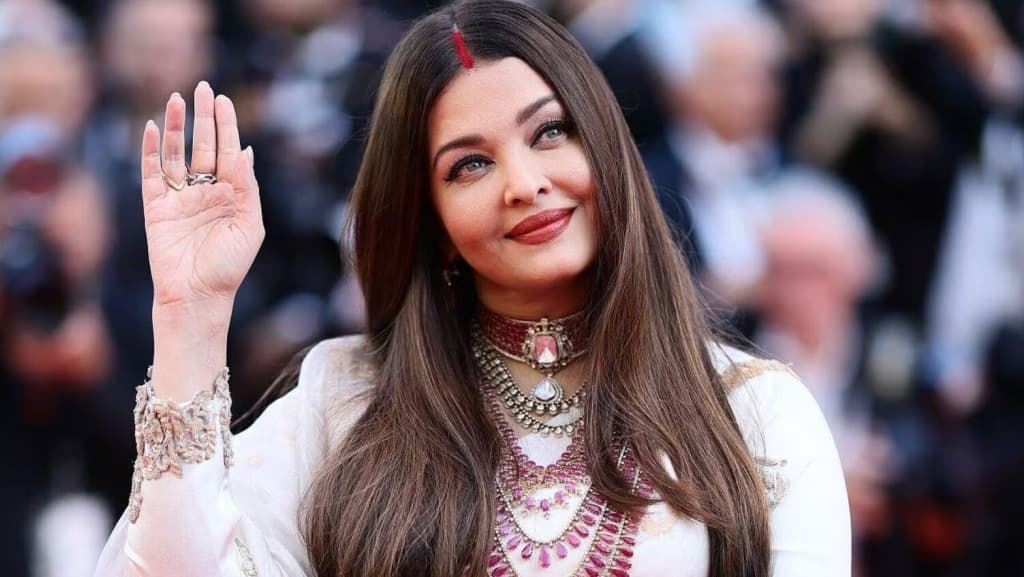
Aishwarya Rai Bachchan Moves Delhi High Court Against Misuse of Her Identity
Actor seeks injunctions to block rogue websites, remove infringing content and curb AI-generated deepfakes.
Bollywood actor Aishwarya Rai Bachchan has moved the Delhi High Court seeking protection of her personality rights, alleging that certain websites were misusing her name and image without consent.
The petition, filed against aishwaryaworld.com and other offenders, claimed that the unauthorised use of her persona reflects a broader pattern of online fraud exploiting celebrities’ identities.
The matter was adjourned till January, but the court is expected to issue interim injunctions against the violators. Justice Tejas Karia noted that a detailed written order would be released restraining the misuse and safeguarding Rai’s rights.
“There are only 151 URLs which will form part of the order as far as you are concerned… We will pass orders against each of the defendants because the prayers are wide. But injunctions will be issued separately,” Justice Karia observed.
Rai’s plea seeks orders to block the website and other infringers, removal of offending URLs, and directions to intermediaries including Google and YouTube to take down unlawful content.
She also sought liberty to extend the order to “John Doe” defendants -- unidentified parties that may upload similar infringing material in the future.
A ‘John Doe’ order is a type of judicial directive issued against unknown or unidentified entities. In cases of intellectual property and personality rights, it enables a celebrity, brand, or rights holder to restrain not only existing violators but also future or undiscovered offenders who may misuse their name, likeness, or material.
Rai’s counsel Sandeep Sethi informed the court that aishwaryaworld.com falsely presented itself as her “only authorized and official website,” without approval.
Sethi said the platform carried personal information, unauthorized photographs, and even marketed merchandise such as T-shirts priced up to ₹3,100 and mugs featuring her image, giving a misleading impression of endorsement.
He further submitted that Rai’s photograph was being used in fraudulent ventures, including a so-called “wealth fund” that placed her picture on its letterhead and listed her as chairperson to collect money. Letters were allegedly circulated in her name to deceive third parties, though she had no role in the entity.
The senior counsel also flagged morphed and AI-generated pornographic material in which her likeness was imposed. Screenshots of fake chats and manipulated images depicting her in offensive contexts were produced in court.
Sethi described the misuse as “derogatory, defamatory, and a direct assault” on Rai’s dignity. The lawyers added that AI-driven deepfakes create a new threat for celebrities, intruding on privacy while inflicting reputational and financial damage.
Rai’s petition highlights the growing number of celebrities approaching courts to safeguard their identity rights.
Earlier rulings of the Delhi High Court protected Amitabh Bachchan, Anil Kapoor, and Jackie Shroff in similar matters. In those decisions, the court restrained the misuse of celebrity names, images, and voices, and affirmed personality rights as part of the constitutional right to dignity and privacy under Article 21.
Last year, the court prohibited unauthorised use of Jackie Shroff’s nicknames “Jackie” and “Jaggu Dada,” as well as his phrase “bhidu.”
Likewise, in 2023, the court upheld Anil Kapoor’s rights over his catchphrase “jhakaas.” In both cases, it blocked commercial exploitation of their names, voices, and images without permission.
Personality rights permit individuals to protect their identity in relation to privacy and property rights.
For public figures, this extends to names, images, and voices, preventing commercial exploitation without authorisation. While India lacks a standalone statute on personality rights, the Supreme Court and high courts recognise these under Article 21. Celebrities may also register their names, signatures, and voices under the Trade Marks Act, 1999.
Legal commentators earlier told Mint that although personality rights are vital in shielding celebrities from fraud and impersonation, overly expansive enforcement could create challenges for content creators, especially in fields such as parody and satire.
For any enquiries please fill out this form, or contact info@thelawreporters.com and Follow The Law Reporters on WhatsApp Channels